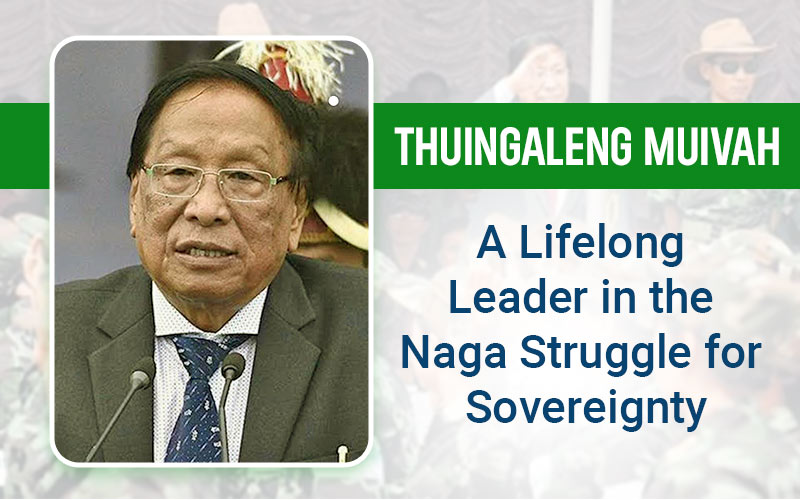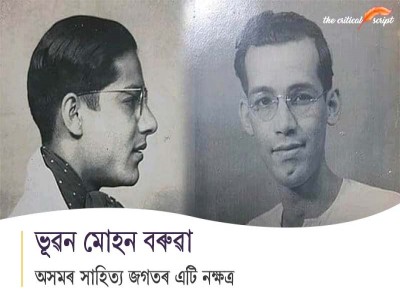
Thuingaleng Muivah: A Lifelong Leader in the Naga Struggle for Sovereignty
Thuingaleng Muivah is a name synonymous with the modern Naga struggle for sovereignty and self-determination. As the General Secretary of the National Socialist Council of Nagaland (NSCN-IM), Muivah has been at the forefront of the Naga nationalist movement for over four decades. His leadership has been marked by resilience, courage, and an unyielding commitment to the Naga cause. To understand the depth of his influence, it is essential to look at his early life, the evolution of his political ideas, and the journey that led him to become one of the most prominent figures in the Naga insurgency.
Early Life and Background
ThuingalengMuivah was born on November 21, 1939, in the village of Somdal in the Ukhrul district of present-day Manipur, a region inhabited primarily by the Tangkhul Naga tribe. This area, nestled in the rugged hills of northeastern India, is historically part of the broader Naga homeland, which stretches across parts of India and Myanmar. The Naga people, like many indigenous groups in the region, had long felt alienated by the central Indian state, especially after India gained independence in 1947.
Growing up in a rural environment where traditional values and customs held sway, Muivah was deeply influenced by his Naga heritage. From an early age, he was taught the importance of self-reliance, freedom, and cultural pride. These values were essential in shaping his worldview and played a central role in his later political endeavors. As a young boy, Muivah experienced the dramatic changes brought on by India’s post-independence political landscape, where issues of sovereignty and identity became highly contentious for the Naga people.
After completing his early education in the local schools of Somdal, Muivah went on to pursue higher studies in the state capital of Imphal and later in Shillong. He earned a degree in history from North Eastern Hill University in Shillong. The academic environment played a pivotal role in shaping his intellectual perspectives on nationalism, self-determination, and the struggles of indigenous communities. It was here that Muivah began to understand the complexities of Naga identity in the context of Indian independence.
Entry into Politics and Naga Nationalism
Muivah’s engagement with the Naga nationalist cause began in the early 1960s when he became actively involved in student politics. During his time at university, he joined the Naga National Council (NNC), the first political body that advocated for the independence of the Naga people. The NNC had been at the forefront of the Naga nationalist movement since the 1940s, pushing for a sovereign Naga nation, free from Indian control.
However, by the late 1960s, internal divisions within the NNC became apparent. A faction of the NNC, dissatisfied with the leadership's compromises with the Indian state, sought a more radical approach to achieving Naga sovereignty. ThuingalengMuivah, along with other like-minded leaders such as IsakChishiSwu and S. S. Khaplang, broke away from the NNC in 1980 to form the National Socialist Council of Nagaland (NSCN).
The formation of the NSCN marked a new phase in the Naga nationalist movement. While the NNC had initially pursued a more political and diplomatic strategy, the NSCN sought to use both armed struggle and political negotiation to secure the Naga people's right to self-determination. Muivah, with his intellectual rigor and conviction, quickly rose to prominence within the group, assuming the role of General Secretary. This was a critical period, as the NSCN would soon engage in a violent insurgency against the Indian government.
The NSCN-IM and Armed Struggle
Under Muivah’s leadership, the NSCN-IM focused on building its military strength and sought to unite various Naga factions under its banner. The armed struggle against the Indian government intensified, and the NSCN-IM began operating in remote areas of Nagaland, Manipur, and parts of Myanmar. Muivah, known for his strategic thinking and strong ideological commitment, became a key figure in both the political and military aspects of the insurgency.
Despite the challenges and the heavy toll the conflict took on the Naga people, Muivah remained a steadfast leader, constantly reiterating the importance of Naga unity and the need to protect the cultural integrity of the Naga tribes. His strong resolve was evident as the NSCN-IM began to gain support not only from Naga communities across the region but also from the broader global diaspora of Naga peoples. He articulated a vision of Naga nationalism that was deeply tied to the preservation of traditional practices, language, and identity.
Muivah’s leadership during this period was marked by his ability to maintain discipline within the ranks and his unwavering commitment to the Naga cause. At a time when the Naga insurgency was being met with intense military retaliation from the Indian state, Muivah’s ability to sustain the movement, albeit in a protracted and difficult manner, was a testament to his leadership qualities.
The Ceasefire and Peace Talks
The turning point in ThuingalengMuivah’s career came in 1997 when the NSCN-IM entered into a ceasefire agreement with the Indian government. This decision to shift from armed conflict to political negotiation marked a significant change in Muivah’s leadership approach. The ceasefire was initially intended to last for a year, but it has been renewed multiple times, and peace talks have continued intermittently ever since.
Muivah’s decision to enter into peace talks was controversial, particularly among more hardline Naga nationalists. Many felt that negotiating with the Indian government would dilute the Naga cause and compromise the integrity of the sovereignty movement. However, Muivah stood firm, arguing that the best chance for Naga self-determination lay in dialogue and political negotiation, rather than armed struggle.
One of the most significant milestones in this process was the signing of the Framework Agreement in 2015, which was seen as a breakthrough in the peace process. While the agreement did not immediately resolve all the issues, it represented a significant commitment from both the Indian government and the NSCN-IM to find a lasting solution to the Naga issue.
Muivah’s Legacy
ThuingalengMuivah’s legacy is complex and multifaceted. To some, he is a symbol of Naga resilience and the struggle for self-determination. To others, his engagement in peace talks and willingness to compromise with the Indian state have made him a controversial figure. Regardless of the differing views on his actions, there is no denying the profound impact he has had on Naga politics.
Under his leadership, the NSCN-IM has managed to gain international attention for the Naga cause, and his efforts have paved the way for more inclusive discussions on autonomy and self-governance. Muivah remains a respected figure, particularly among the Tangkhul Naga people, who view him as a protector of their cultural heritage and political rights.
In conclusion, ThuingalengMuivah is one of the most important figures in the history of Naga nationalism. From his early education and involvement in the Naga struggle to his leadership of the NSCN-IM and his engagement in peace talks, Muivah has remained a steadfast advocate for the rights of the Naga people. Whether in times of armed resistance or in the delicate negotiations of peace, Muivah’s leadership has been characterized by his unwavering commitment to the Naga cause and his ability to adapt to the changing dynamics of the conflict. His legacy will undoubtedly continue to shape the future of Naga politics for years to come.
Disclaimer: The opinions expressed in this article are those of the author's. They do not purport to reflect the opinions or views of The Critical Script or its editor.

Newsletter!!!
Subscribe to our weekly Newsletter and stay tuned.

















Related Comments